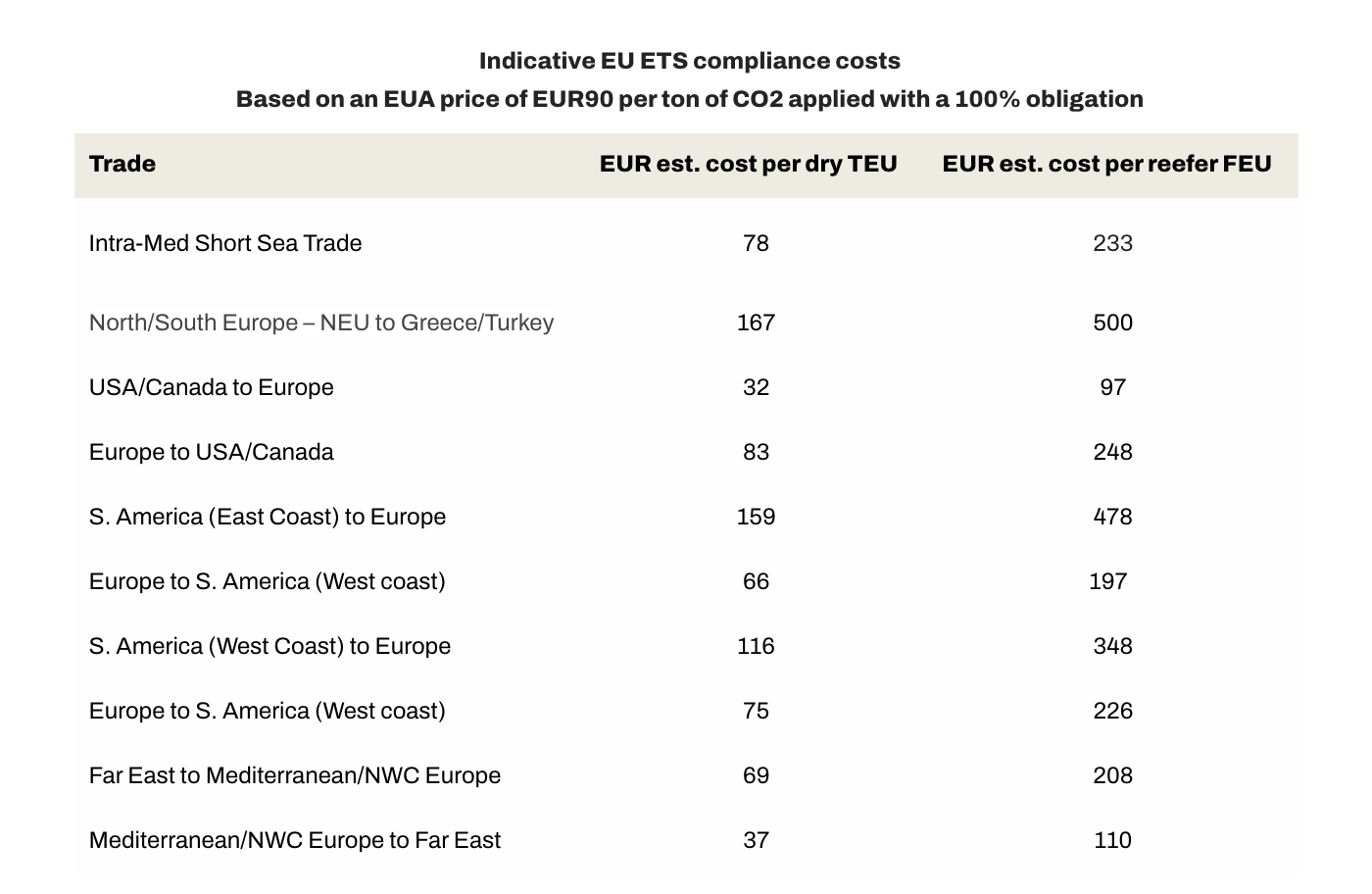
MSC has outlined its cost projections for adhering to the Emissions Trading System (ETS) as the planned regulation advances in the European Union (EU).
While the details of the regulations are still being worked out, MSC said that compliance will result in greater operational costs, which will need to be passed along to customers. The price of EU Allowances (EUAs), which effectively permits the industry to emit CO2 over a predetermined threshold, will determine the costs associated.
Higher operating costs expected
"As we follow the deliberations around the potential expansion of the European Union Emissions Trading System, we would like to provide an update on how these changes may impact you," MSC said in a statement, noting that the shipping line has fully complied with all EU MRV (Monitoring, Reporting, Verification) requirements to date and will fully comply with the new requirements of the EU ETS, once the EU finalizes its application.
When the law goes into effect, MSC noted that it will compute costs on a monthly basis using a public index of EUA prices to produce charges on a per-service basis with distinct structures for inbound and outbound cargoes.
"Should the EU fully implement its plans, we anticipate higher operating costs in order to be compliant," the shipping line added.
Based on its estimates, MSC pointed out that based on an EUA price of €90 per tonne and assuming voyages are 100% covered by the scheme, compliance costs range from a high of €500 per forty-foot equivalent unit (FEU) for a reefer North/South Europe – NEU to Greece/Turkey to a low of €32 per FEU for a dry box from USA/Canada to the EU.
Based on an EUA price of €90 per ton of CO2 applied with a 100% obligation, MSC also estimated adding the cost on its Far East to North Europe trade of €69 per TEU for dry containers and €208 per FEU for reefer containers.
North Europe to Asia, the cost would be €37 per dry TEU and €110 per reefer FEU.

Source: MSC
MSC noted that the European Commission has proposed a phased-in approach for the shipping industry over the next four years, beginning on 1 January 2023.
Meanwhile, the Parliament has recommended 100% application from the start.
"The final start date for coverage has yet to be determined, as the legislative process is still ongoing," the MSC announcement said.
Meanwhile, the shipping line noted that all emissions for intra-EU trade are set to be covered by ETS, and 50% of voyages with only an origin or destination in the EU.
"We are closely monitoring as proposed regulations proceed through appropriate legislative mechanisms within the EU regulatory framework and we will provide updates accordingly," MSC added.



